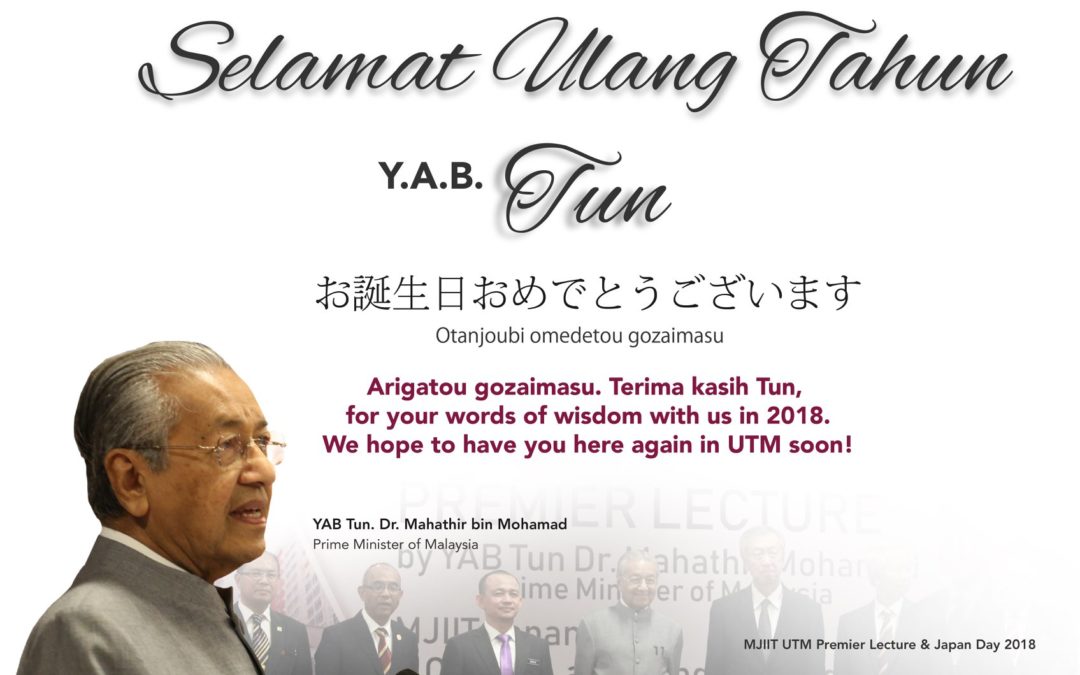
by dylanahmad | Jul 11, 2019 | MJIIT Events, MJIIT On Media
On 10th of July is the birthday of YAB Tun Dr. Mahathir Mohamad, we would like to wish Tun:
お誕生日おめでとうございます, Otanjoubi omedetou gozaimasu!
From all of us in Malaysia-Japan International Institute of Technology MJIIT UTM, Selamat Ulang Tahun, YAB Tun!
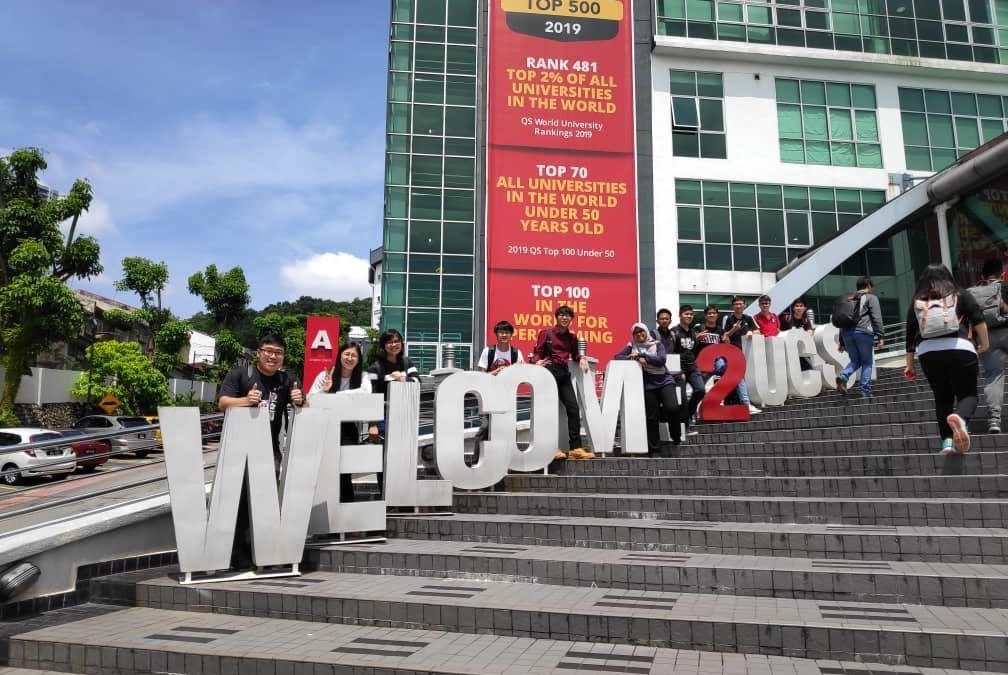
by dylanahmad | Jul 8, 2019 | MJIIT Events, MJIIT Student Events
The Japanese Language Proficiency Test (JLPT) is a standardized criterion-referenced test structured to evaluate and certify Japanese language proficiency for non-native speakers. The JLPT certificates have high credibility internationally, besides having many advantages ranging from recognition as academic credit and graduation certification at schools to preferential treatment at companies and acknowledgement of qualification in society. This test covers the elements such as the language knowledge, reading ability and listening ability. Outside Japan, the test may be held only in July or December in some cities. Therefore, this test is only held twice a year in Malaysia. The JLPT has 5 levels; N1 (most difficult), N2, N3, N4 and N5 (easiest).
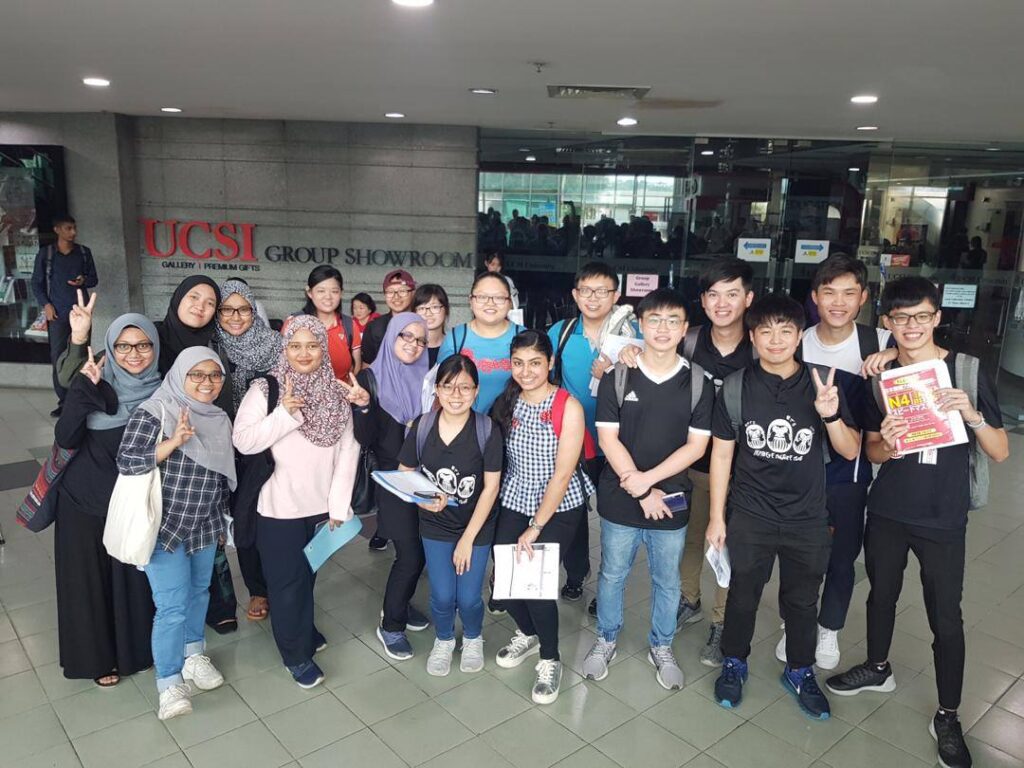
For the latest July paper, a total of 36 Malaysia-Japan International Institute of Technology (MJIIT) sat for the test. The candidates are of the 1st, 2nd, 4th year students and also post-graduate students. Each of these students took a different level of JLPT; N2 – 2 students, N3 – 6 students, N4 – 18, students and N5 – 10 students.
During the Career Fair Program, the Japanese companies claimed that the candidates with the JLPT certificates of N3 level and above would stand out compared to the other candidates in job-seeking at Japanese companies in Japan.
Here in Malaysia-Japan International Institute of Technology, we look at this as an opportunity to improve our graduate employability. Hence, this is one of the reasons MJIIT is promoting JLPT and is in the process of revising the current curriculum.
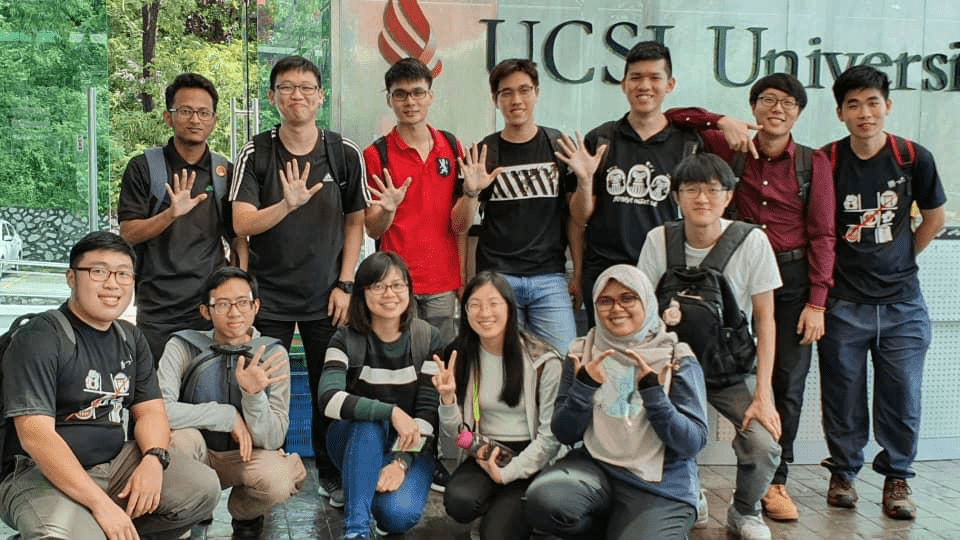
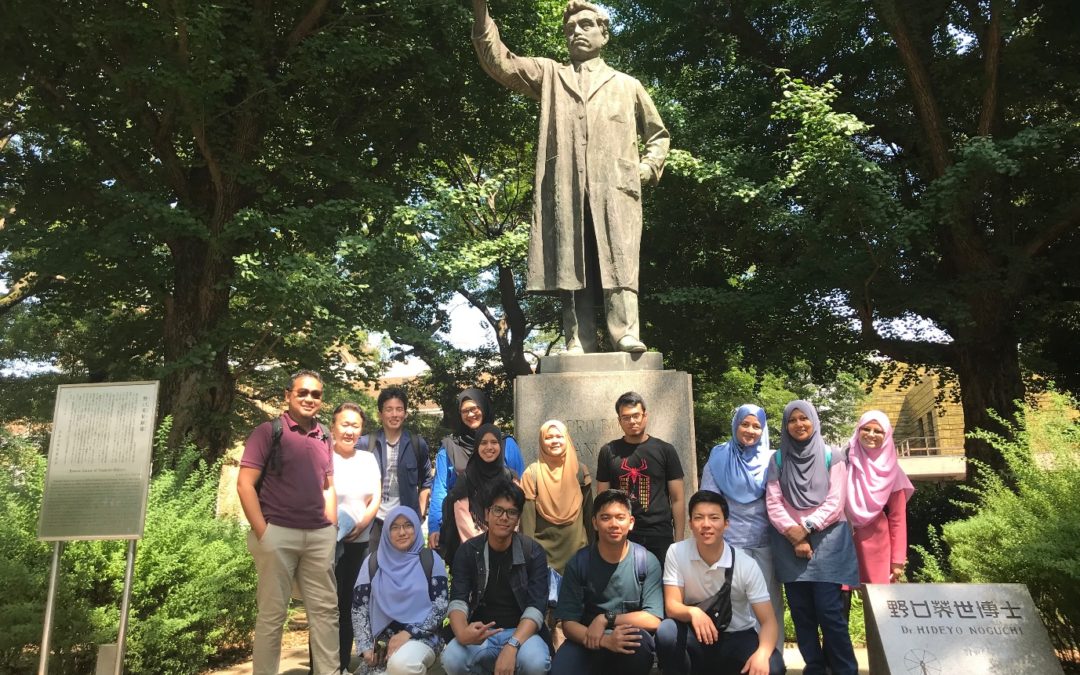
by dylanahmad | Jul 5, 2019 | MJIIT Events, MJIIT Student Events
7 days in Japan with a group of MJIIT students!
A group of 10 MJIIT students from ChECA Ikohza were given a chance to travel to Japan in a program called Sakura Science Plan at the AP Dr. Kazuya Shimizu Molecular Laboratory, University of Tsukuba. They were appointed a task to conduct an experiment on the assessment of the impact of microbial community structural on biopolymer degradation. Not only that, in this Sakura Science Plan, the teaching of the theoretical part of the molecular of microbiology assessment was also incorporated.
Throughout the 7 days in Japan, the students have taken part in many eye-opening activities such as touring the campus, visiting Tokyo National Museum, lab activities such as bio-polymer degradation and analysis on microbial community change. Following the lab activities, the students then had to conduct a presentation and discussion regarding their experience in the research work and also those related to the Japanese culture. On the last day, before leaving for Kuala Lumpur, they had the opportunity to visit Miraikan – The National Museum of Emerging Science and Innovation.
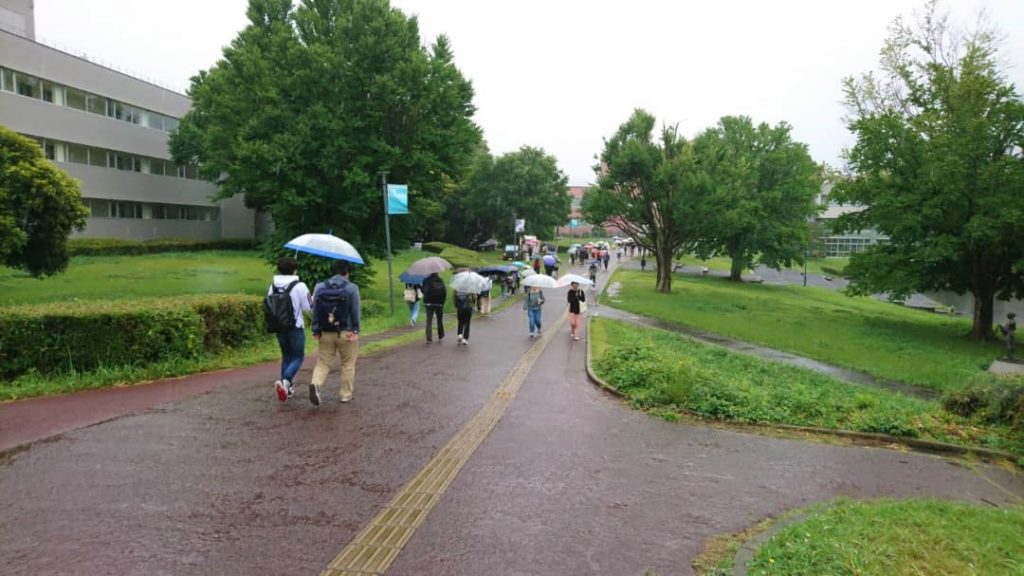
Day 1: Campus Tour
On the first day of the program, participants visited the Nobel Prize Gallery, Bio-Process Laboratory and Aquatic Eco-Engineering Laboratory. A lecture on molecular analysis on microbes was also delivered by Shimizu Sensei. Soil for the experiment on bio-polymer degradation was collected aroun the Laboratory for Environmental Disaster Building Prevention Research.
Day 2: Tokyo Tour
On the second day, participants visited the Japanese oldest and largest art museum, Tokyo National Museum (TNM). This museum is located in Ueno Park in Taito, Tokyo. From the visit, participants learned about the ancient Japanese art and Asian art. After visiting the museum, participants were given an opportunity to try the traditional soba in Tokyo.
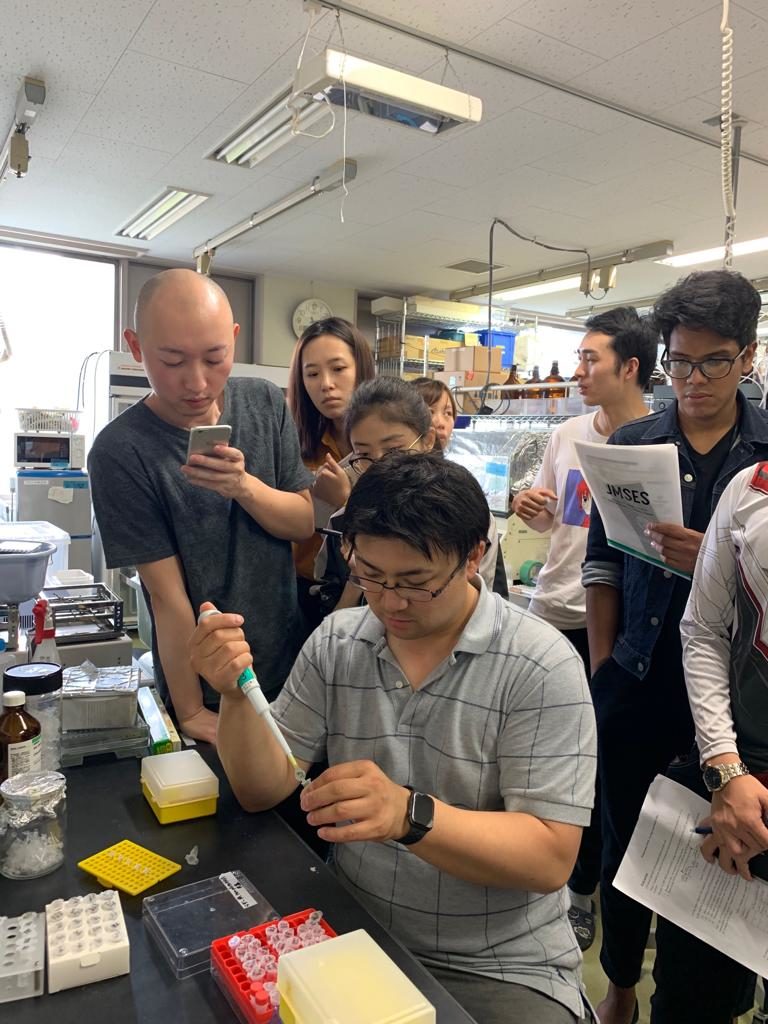
Day 3 to 5: Lab activities
Experiment on the bio-polymer degradation was carried for 10 samples. From the experiment, DNA was extracted and analysed by using Polymerase Chain Reaction and Agarose Gel Electrophoresis. The experiments were carried with the help of Shimizu Sensei’s postgraduate students. On the third day, a special dinner was held by the UT and JST staffs to celebrate the Sakura Science Plan participants. Various sushi was served and other Malaysian students at UT were also invited for the dinner.
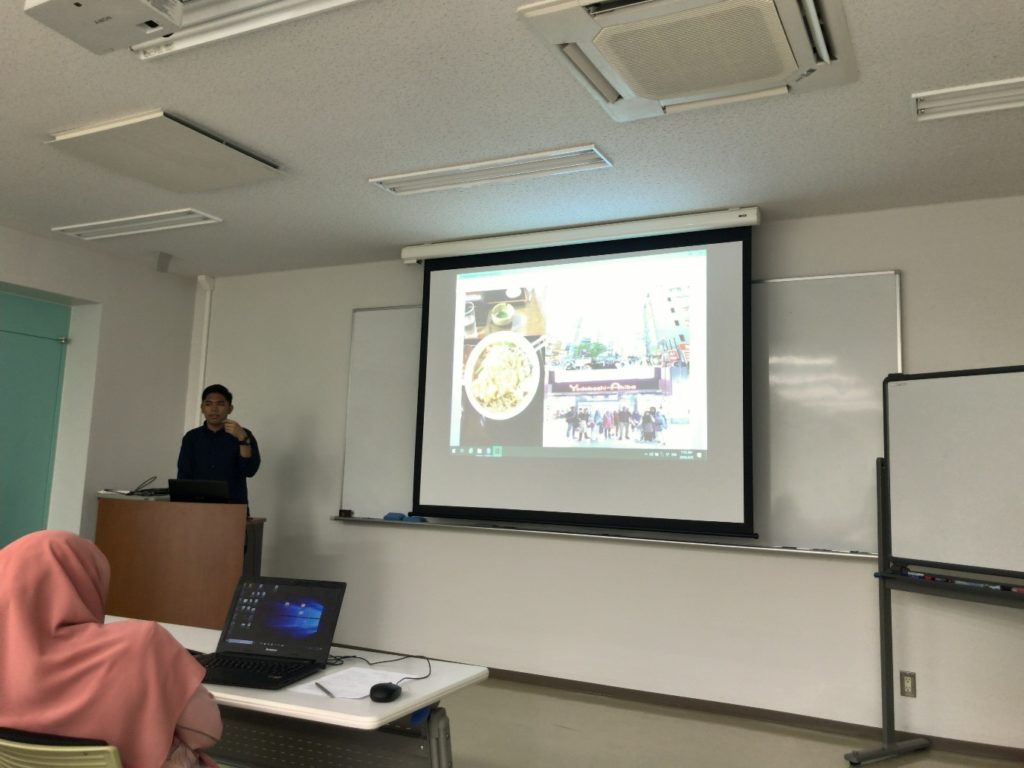
Day 6: Presentation and Discussion Day
After completing the research activity, participants presented their experience in the research work and Japanese culture. Each participant receives insightful comments and questions from Shimizu Sensei regarding their research and Japan experience. A closing ceremony was held after the presentation. The certificate and Sakura Science badge were distributed by Shimizu Sensei to the participants.
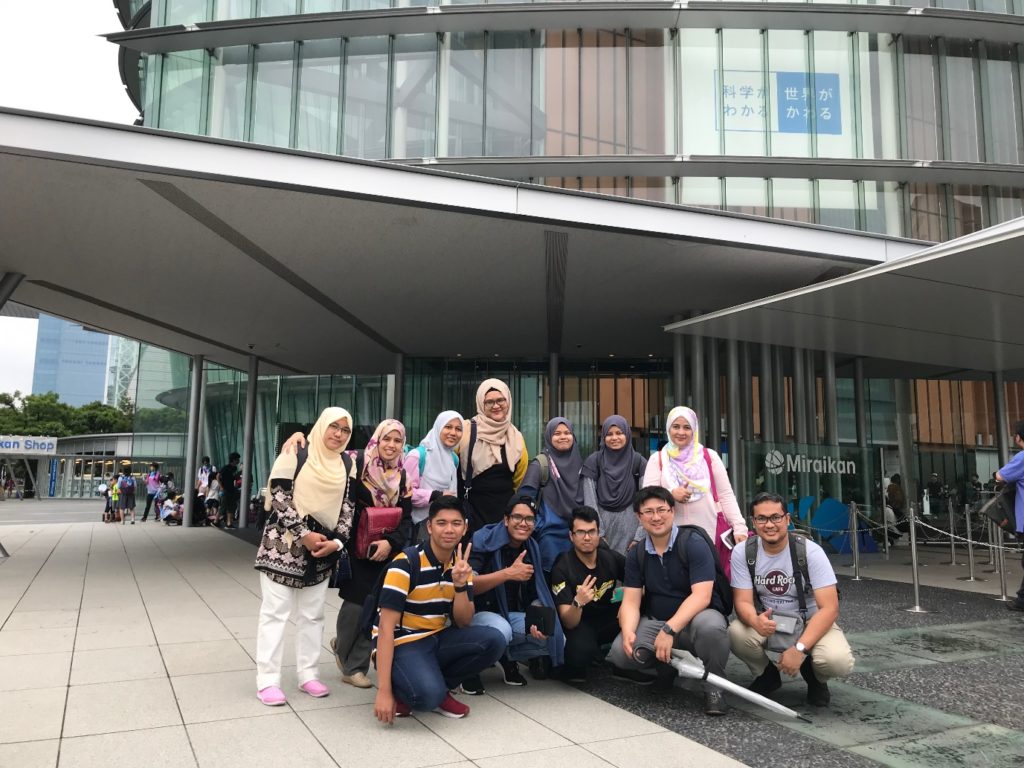
Day 7: A Visit to Miraikan, Odaiba
Before departing to Kuala Lumpur, the participants visited Miraikan – The National Museum of Emerging Science and Innovation. Participants were very excited to learn about Japanese innovation and technology.
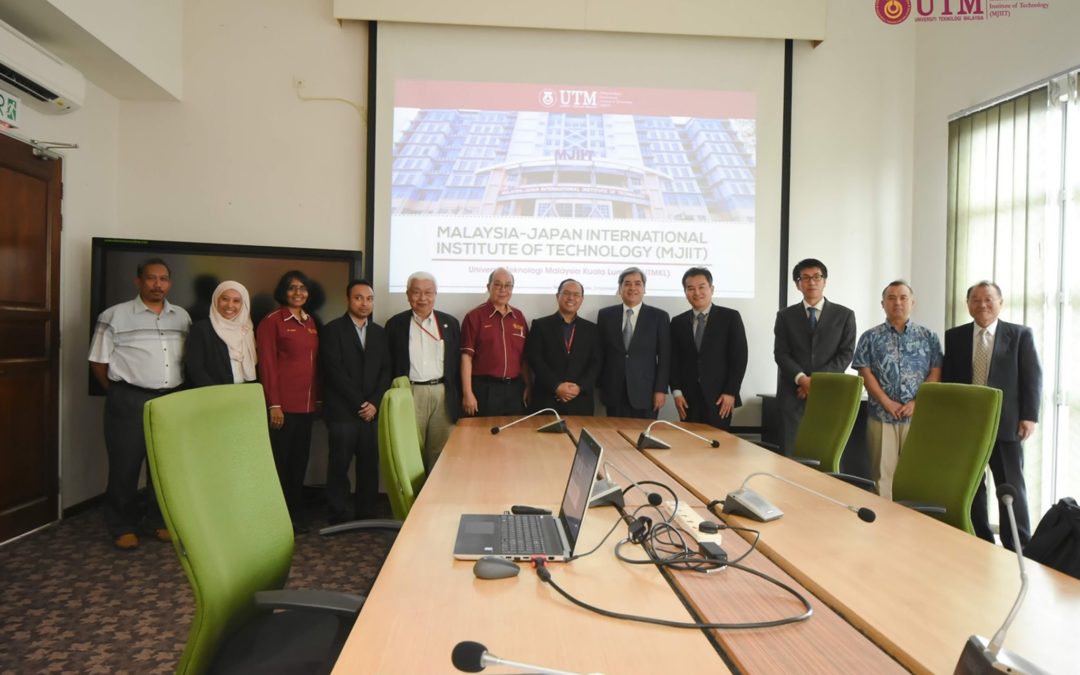
by dylanahmad | Jul 5, 2019 | MJIIT Events
On 2nd of July 2019, Malaysia-Japan International Institute of Technology, MJIIT UTM received delegates from Saga University, Japan.
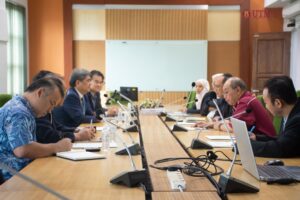
Meeting session MJIIT and Saga University.
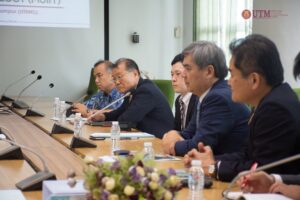
Delegates from Saga University
Saga University is situated in the center of Saga City (population 240,000). The city is small enough to be friendly, uncrowded and safe. Longstanding traditions and the Samurai spirit of Hagakure remain and are deeply rooted in the life of its people. Saga is easily accessible to Fukuoka Metropolitan Area, the fashionable center of economy and culture in Kyushu. In less than an hour, you can be there to enjoy shopping, whilst experiencing the urban culture. Saga University’s two campuses, Honjo and Nabeshima, are surrounded by the beauty of nature and located in one of the largest agricultural areas. The rich green environment is ideal for studies and research and is loved by students and citizens.
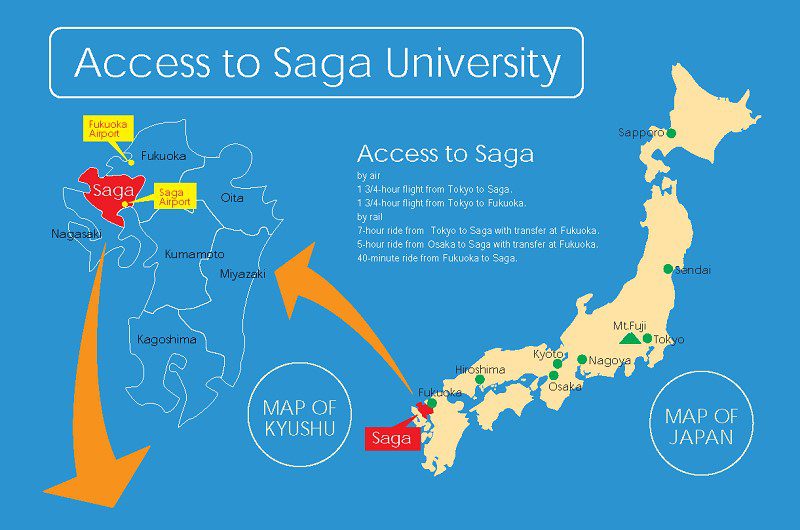
Saga University aims to work together with MJIIT in student exchange and young researchers’ exchange programmes, as well as providing opportunities for MJIIT students to experience their internships with them.

by dylanahmad | Jul 5, 2019 | MJIIT Staff Events
Malaysia-Japan International Institute of Technology team held its joyous and vibrant Hari Raya celebration, along with Staff Appreciation Ceremony on the 1st July 2019.
Malaysia-Japan International Institute of Technology wishes you Selamat Hari Raya Maaf Zahir dan Batin!














